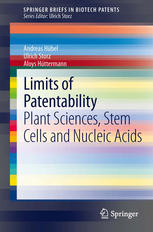

Most ebook files are in PDF format, so you can easily read them using various software such as Foxit Reader or directly on the Google Chrome browser.
Some ebook files are released by publishers in other formats such as .awz, .mobi, .epub, .fb2, etc. You may need to install specific software to read these formats on mobile/PC, such as Calibre.
Please read the tutorial at this link: https://ebookbell.com/faq
We offer FREE conversion to the popular formats you request; however, this may take some time. Therefore, right after payment, please email us, and we will try to provide the service as quickly as possible.
For some exceptional file formats or broken links (if any), please refrain from opening any disputes. Instead, email us first, and we will try to assist within a maximum of 6 hours.
EbookBell Team

5.0
18 reviewsSpringerBriefs in Biotech Patents presents timely reports on intellectual properties (IP) issues and patent aspects in the field of biotechnology. In this volume the limits of patentability are addressed, a question that is often raised when it comes to biotechnological inventions: The first section addresses current issues in the patentability of plants produced by essentially biological processes including the controversy between farmer’s privilege and patent exhaustion with respect to seeds in the US. The second section examines the patentability of human embryonic stem cells in Europe and the US, also considering alternative technologies with respect to their practicability and patentability. The third section focuses on the patentability of genes and nucleic acids, especially the issue of patenting of encoding genes and nucleic acids.